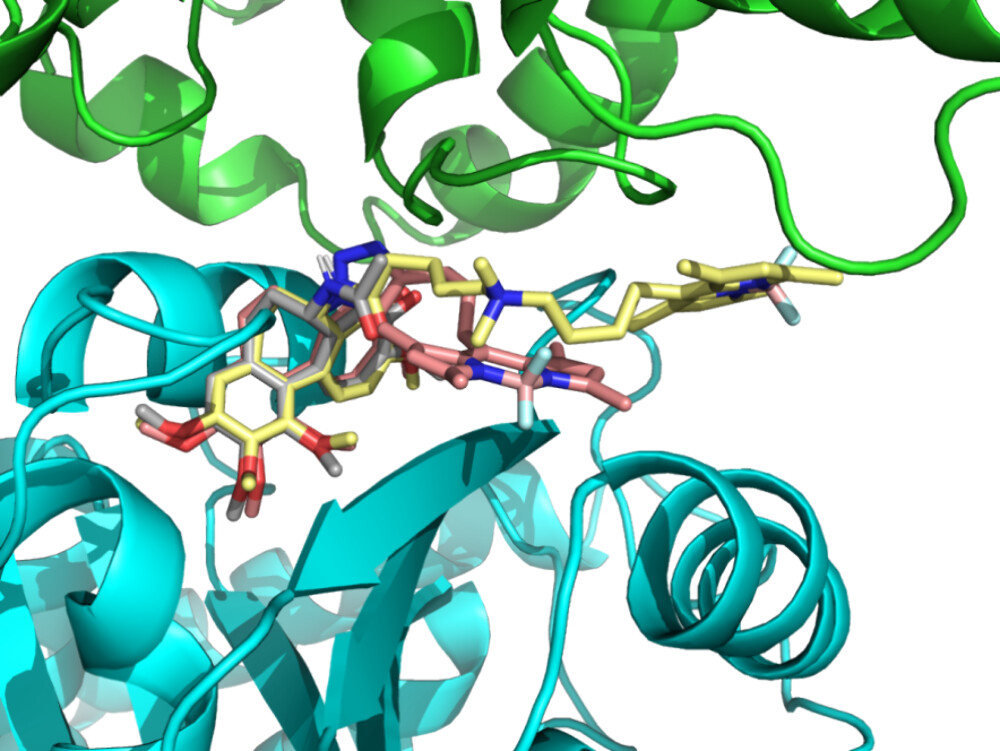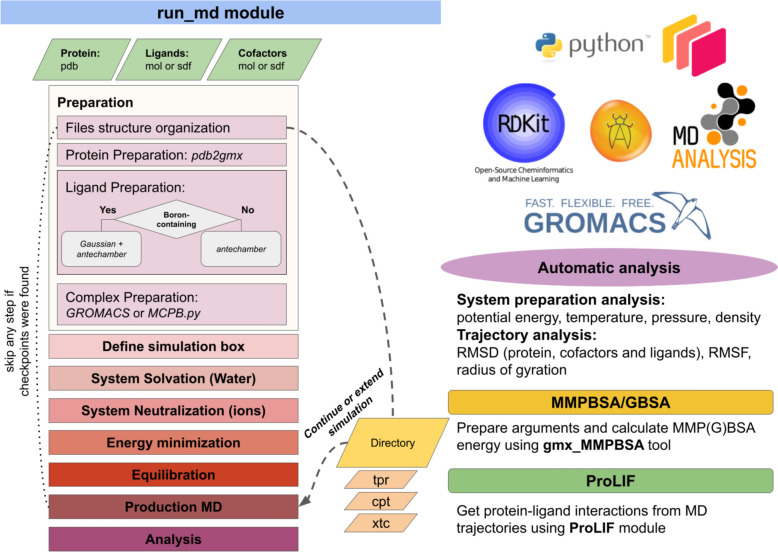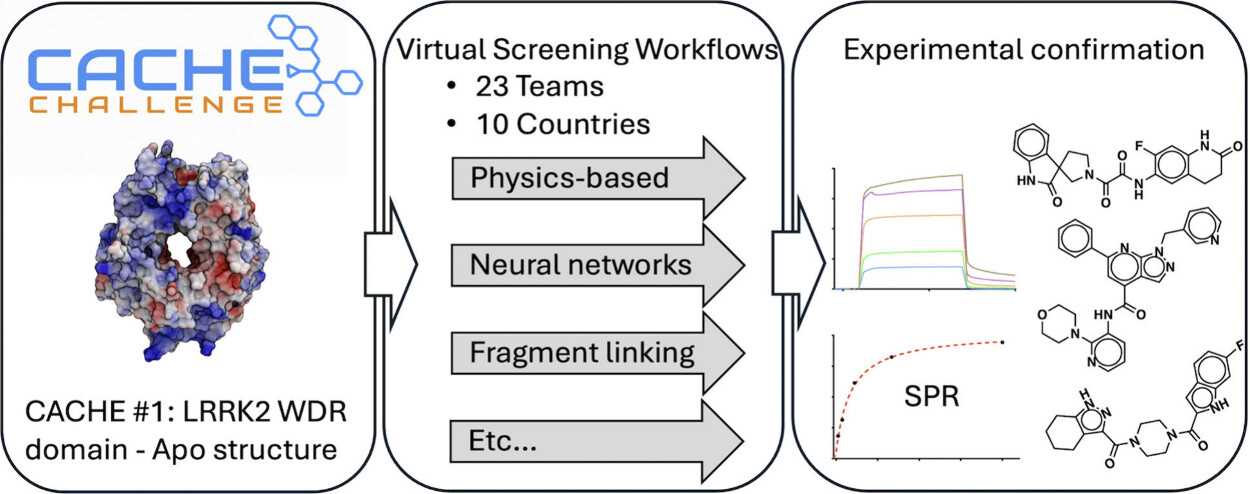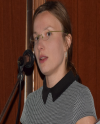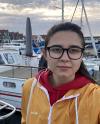Polishchuk Pavlo Ph.D., M.Sc.
Journals
Books & book chapters
Multi-instance Learning for Structure-Activity Modeling for Molecular Properties,
1.vyd,
Kazan,
Springer,
2021,
7,
62-71,
Dedication: RFMEFI57518X0177,
ISBN: 978-3-030-39574-2,
The Cross-Interpretation of QSAR Toxicological Models,
1.vyd.,
Springer, Cham,
2020,
262-273,
ISBN: 978-3-030-57820-6,
Structural, Physicochemical and Stereochemical Interpretation of QSAR Models Based on Simplex Representation of Molecular Structure,
1st,
Springer International Publishing,
2018,
4,
107-147,
ISBN: 978-3-319-56849-2,
Doctoral mentorship
Ivanova (Nikonenko) Aleksandra
In silico design of compounds with desired properties
Status:
Ongoing from 2019.
Master mentorship
Švec Dávid
Data-driven optimization of compound properties and exploration of a chemical space
Status:
Graduated from 2016 to 2019.
Open positions
| Project: | Postdoctoral fellow/Researcher |
|---|---|
| Supervisors: | Polishchuk Pavlo Ph.D., M.Sc. |
| Available: | 1 |
| Intended for: | Postdoctoral training |
| Summary: |
The group of chemoinformatics and drug design at the Institute of Molecular and Translational Medicine, Faculty of Medicine and Dentistry, Palacky University in Olomouc, Czech Republic (https://imtm.cz/laboratories/chemoinformatics-and-drug-design) seeks for a postdoctoral fellow with experience in chemoinformatics and programming. The primary objective of the group is development of new computational approaches and software tools in drug design and their application in medicinal chemistry projects on hit/lead identification/optimization and target identification. The successful candidate will be mainly involved into the project on de novo fragment-based drug design and optimization. He/she will implement new and improve existing tools and approaches, validate them retrospectively and apply those tools in ongoing medicinal chemistry projects conducting at our institution in close collaboration with medicinal chemists and biologists. The candidate can be involved in other research projects depending on his/her experience and skills. The formal requirements: PhD in chemistry, chemoinformatics, computer science or related fields or 3 years of experience in relevant fields experience with molecular docking/pharmacophore modeling/machine learning knowledge of RDKit good Python programming skills and experience in software development data analysis skills basic medicinal chemistry knowledge is a plus good publication record excellent writing and spoken English The position will be opened for 2-3 years with a possibility of extension. Informal inquiries as well as applications, including curriculum vitae and bibliography, cover letter describing candidate research interests and past accomplishments should be sent via email to pavlo.polishchuk@upol.cz. |
| Project: | Development of 3D pharmacophore signatures and their application in the design of anticancer drugs |
|---|---|
| Supervisors: | Polishchuk Pavlo Ph.D., M.Sc. |
| Available: | 1 |
| Intended for: | Doctoral training |
| Summary: | 1 place in the face-to-face form of study |
| Project: | In silico design of compounds with desired properties |
|---|---|
| Supervisors: | Polishchuk Pavlo Ph.D., M.Sc. |
| Available: | 2 |
| Intended for: | Doctoral training |
| Summary: | One of the main goals of chemoinformatics is development of new compounds with desired properties or activities. Many de novo design approaches were suggested so far. The designed compounds should satisfy multiple criteria, e.g. synthetic accessibility, novelty, diversity, selectivity, etc. Generators of chemical structures satisfying these criteria are a core of all de novo design approaches. Available approaches often result in synthetically hardly accessible structures or limit their diversity and novelty. Within this study a new fragment-based approach for structure generation will be implemented which will result in chemically valid structures and will provide flexible control over their diversity, novelty and synthetic accessibility. This will be used for development of de novo design approaches based on molecular docking, pharmacophore modeling to generate compounds which will be able to fit to a binding site of a given protein. This can be used for development of novel compounds and for optimization of structures of available ligands. Developed approaches should be implemented in open-source software tools. |
| Project: | Development of 3D pharmacophore signatures and their applications to drug design |
|---|---|
| Supervisors: | Polishchuk Pavlo Ph.D., M.Sc. |
| Available: | 1 |
| Intended for: | Doctoral training |
| Summary: | Pharmacophore modeling is a powerful approach to encode possible protein-ligand interactions and searching of new promising compounds in large libraries. So far, almost all available software for pharmacophore modeling is proprietary and implemented approaches have some limitations to efficiently work with big data. Within this study a new approach to represent 3D pharmacophores as hashes will be implemented. This representation will make it possible to quickly identify similar pharmacophores in large data sets. This property can be used to develop a new alignment free approach to ligand-based pharmacophore modeling. The developed 3D pharmacophore hashes will help to identify representative pharmacophores retrieved from molecular dynamic simulation of protein-ligand complexes. These developments will increase success rates of future screening campaigns and should be implemented in open-source software. |
| Project: | Modifications of biologically active molecules leading to improvement of their pharmacological properties |
|---|---|
| Supervisors: | Urban Milan Ph.D., Ranc Václav Ph.D., Polishchuk Pavlo Ph.D., M.Sc. |
| Available: | 3 |
| Intended for: | Doctoral training |
| Project: | Ligand- and structure-based modeling of biologically active compounds |
|---|---|
| Supervisors: | Polishchuk Pavlo Ph.D., M.Sc. |
| Available: | 1 |
| Intended for: | Doctoral training |
| Project: | New chemoinformatics approaches to fragment-based drug discovery |
|---|---|
| Supervisors: | Polishchuk Pavlo Ph.D., M.Sc. |
| Available: | 1 |
| Intended for: | Doctoral training |
| Project: | Development of 3D pharmacophore signatures and their application in anticancer drug design |
|---|---|
| Supervisors: | Polishchuk Pavlo Ph.D., M.Sc. |
| Available: | 1 |
| Intended for: | Doctoral training |
| Project: | Fragment-based de novo design using pharmacophore models |
|---|---|
| Supervisors: | Polishchuk Pavlo Ph.D., M.Sc. |
| Available: | 1 |
| Intended for: | Master training |
| Project: | Computationally guided optimization of compound properties |
|---|---|
| Supervisors: | Polishchuk Pavlo Ph.D., M.Sc. |
| Available: | 1 |
| Intended for: | Master training |
| Project: | Applicability domains in machine learning modeling |
|---|---|
| Supervisors: | Polishchuk Pavlo Ph.D., M.Sc. |
| Available: | 1 |
| Intended for: | Master training |
| Project: | Novel 3D pharmacophore representation for machine learning |
|---|---|
| Supervisors: | Polishchuk Pavlo Ph.D., M.Sc. |
| Available: | 1 |
| Intended for: | Master training |

